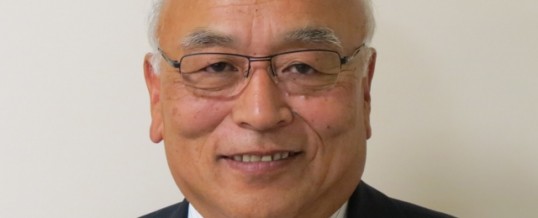
K. Ken Fujimoto
Every four years, the Summer Olympic Games are held. This causes problems on many levels for me. On one level, I do not think the problem is any different than it is for many of you. Depending on where the games are being held and what event is taking place, we find ourselves lacking sleep since we stay up late watching events. This is compounded for ministers at this temple since our articles are going to be due for the Dharma Newsletter and we are also having the BCA Ministers Association Summer meetings and seminar soon. This means that we have an even shorter time frame than usual to complete our articles. This means that I am tired and rushed; not a good combination!
On the other hand, the Olympics can provide inspiration for articles, if we have time and the existential space to consider them. How does someone who has been training for four years feel if they are getting lapped in the pool or on the track by other contestants? How does it feel to get edged out of a spot by a training partner? How does it feel to slip or suffer an injury just as you leave the starting block? There can be much to consider, but a point that stood out occurred while watching gymnastics. Apparently, there is a rule where only the top 2 members of a team can compete for individual medals after the qualifying rounds. Many people seemed to be expressing their sense of unfairness in this rule. The members of a given team may qualify in first, second and third positions, showing that they are better than anyone else, but only the top two can compete in individual competition.
On one level, this seems extremely unfair. If the idea is actually to find the world’s best in a given event, then the top qualifiers should be able to compete, regardless of the fact that a large number of them may be from the same team. However, if the real objective is, as the Olympic Committee often seems to stress, to promote unity and fellowship and achieving a higher level of ability through friendly competition, the rule makes sense. If that is the case, it raises the question as to why so much emphasis is placed on the medal counts of each nation. If it is truly a friendly competition, why not have participation awards instead? Do you want to see people getting lapped in competition or do you want closely contested events? Does it matter if the best in the world in an event are from one nation?
I mention all of this, not to complain or make a case one way or another, but to point out the confusion that can be created by mixed messages. If it is to determine the best, than there should be no limitations as to how many from a team can participate in the individual competitions. Granted, there are different ruling organizations for each sport, but something should be done to clearly define the reason for the entire event.
This is something we need to keep in mind at the temple and the rest of our lives as well. We need to avoid confusing the issue by adding things that would be “nice” but may not have anything to do with the original intent of a function, service or of the temple. To add things without clearly having a goal in mind can lead to very confusing situations. This is one of the reasons that it is stressed in Buddhism that there are many paths to the ultimate goal of enlightenment or Buddhahood, but that we should be constantly aware of the path we travel. That is one of the reasons that our temples were actually referred to as dojo, where one cultivates the path, just as in the martial arts. Our dojo is the place where we cultivate the path of the Nembutsu life. To add aspects of other paths may be helpful at times, but we should be careful not to confuse the issue and not to lose sight of our goal and of the path.
Why do we exist and what are we doing to accomplish that goal? We must never confuse these points.
© August 14, 2016
AUG
